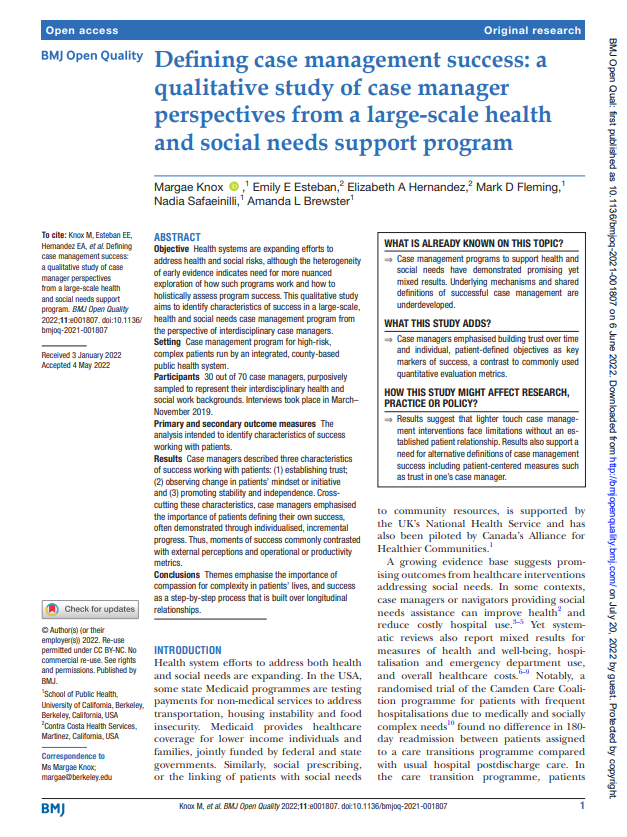Headline
Case managers noted establishing trust, fostering mindset changes, and increasing stability and independence can be measures of success when working with people with complex needs.
Context
Studies on case management interventions that support people with complex health and social needs have shown mixed results. These studies often analyze cost and utilization outcomes but lack descriptions of elements and processes that make programs successful. This qualitative study interviewed 30 case managers to identify characteristics of success working with patients with complex needs.
Findings
Establishing trust was the most frequently cited characteristic of success when working with patients. Another characteristic is fostering a change in patients’ mindsets, which often resulted in them more fully benefiting from program resources. Case managers also noted patients’ stability and independence as characteristics of success. Across these three themes, case managers noted that success should be defined by patients and is often incremental and non-linear. However, these individualized and incremental successes are not always captured by typical program measures.
Takeaways
Complex case management programs can consider these findings when designing programs, new staff trainings, and new measures to foster stronger relationships with patients.

